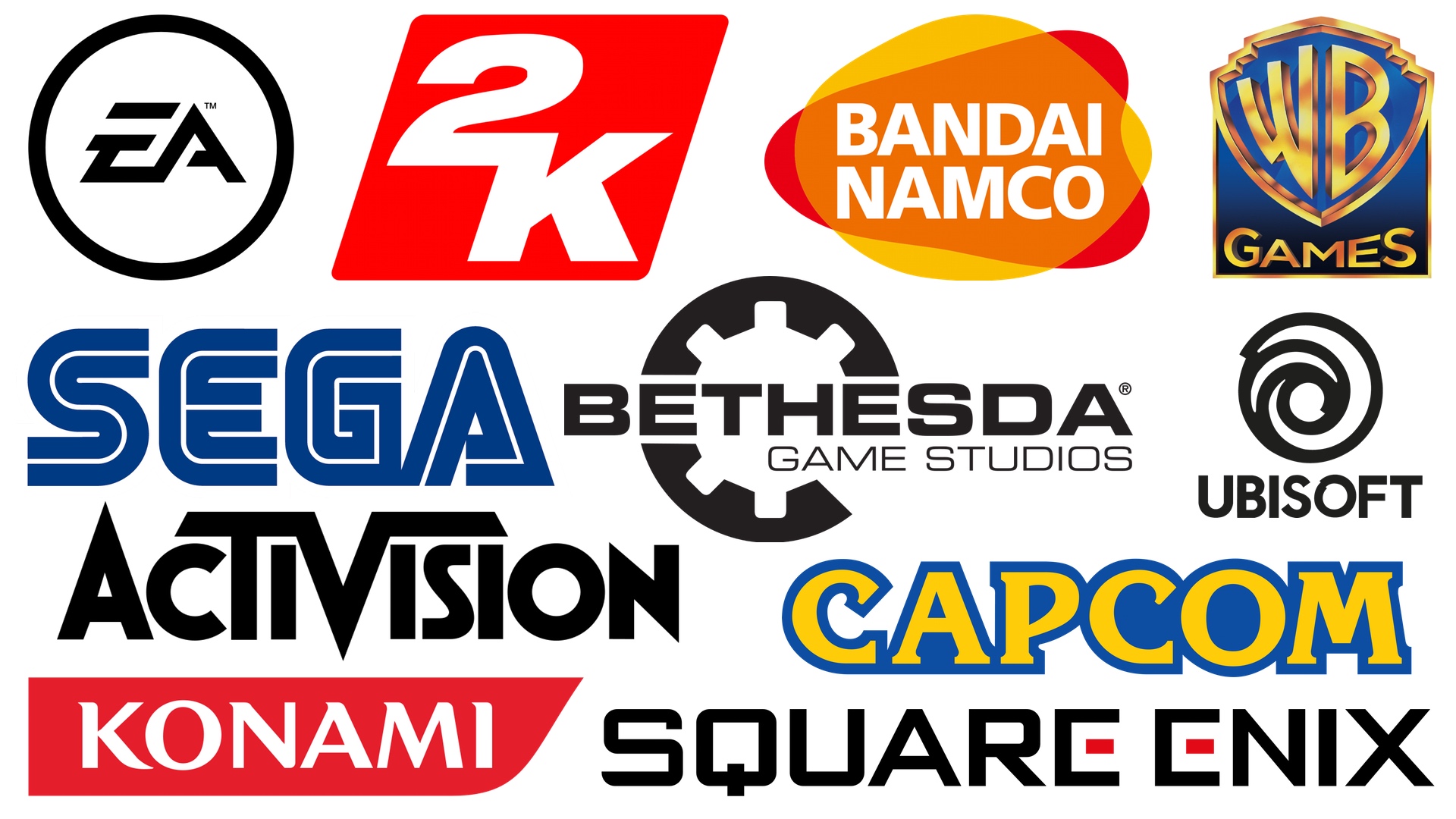
Featured Blog | This community-written post highlights the best of what the game industry has to offer. Read more like it on the Game Developer Blogs or learn how to Submit Your Own Blog Post
Problems of Developing Games in Non-Developed Territories: The Usual Suspects (Part 1)
In this first post of a multi-part series, we will look at what causes are creating problems for emerging game territories. This first part focuses on the common aspects most of those inside such territories are familiar with.

This was originally published on triboundgames.com
In the next couple of posts I'll be examining a number of reasons for what's holding back certain territories and countries from having a strong and lively games industry. This will be a multi-part series and I've been planning to write this series for a very long time now. Before I start, I recommend reading Rami Ismail's post on the different stages of a game dev community development. It helps to use as a frame of reference since I'll be using my own country's community/industry as an example.
For starters, I'd say Iran's game dev community is somewhere between stage 3&4, depending on how you define it. International knowledge exchange has been established and if you're to look at it from a checklist, Boolean perspective it's made a lot of progress. It's got an IGDA chapter, it has an international convention, a national game award and arguably even has a couple of "heroes". On the other hand, it's also not making much progress when it comes to the quality of games being produced, there is still almost no contact with the international games press and media, the goal of most game developers isn't even "to make it big in the West" and more along the lines of "get rich" or "just survive" depending on who you talk to, and arguably we don't have any hero yet either.
I believe there's a lot of influencing and intertwined factors that go hand-in-hand that halt the progress of dev communities such as ours and there's been a lot of talk like in GDC 2018 from those observing and walking this path. This year's #1ReasonToBe talk was entirely focused on this issue and I also recommend it a watch. Developers and community members from all over the world in developing territories came and had their say. For me almost everything they say is a familiar story that I've experienced myself or heard from someone I know.
In this first post of the series I'll be going over the most common causes and reasons given that stand as hurdles for developing territories in game. These are the things that are most obvious, that you might have heard of and if you're in such a developing territory, probably already thought of. I've simplified and grouped some of these problems since I feel that they are pointing to the same thing and just codified them for the sake of simplicity. Let's examine each of these and see how they impact the growing industries.
Culprit#1: "There is no established games industry!"

"Well sheesh captain obvious" you might say, what's the point, don't all industries in every territory start from somewhere? Technically speaking yes, every game industry territory around the world started without an existing big game company, but the starting conditions for the games industry in America, Japan and all the other territories that entered earlier had a vastly different business environment comparatively speaking. For instance, according to game industry veteran David Mullich, you could build a high-end game in 1990 with a budget of $40,000. Don't take his word for it, just go look at the credits of games in the 80s and 90s and games today. Sure, today we have freely available game engines, but the requirements and market expectations are much much higher than in the past. The past half-decade has also seen a drastic shift with the "Indiepocalyspe", and now it's harder than ever to get recognized.
So what does the lower and easier requirements of the 80s and early 90s mean? It meant that you could get a game studio going and competitive from off the ground with little more than raw talent and small investments. This is how Blizzard, EA, Atari, Activision and even Bioware started off. A small group got together, pooled their available resources and talent and grew as a company. That's just not possible today, whether in the West or in newly formed game dev territories. That's the part of why the developed countries have big game companies and how those territories were built from nothing. However it goes without saying that besides the big AAA studios, the game dev communities of the stage 5+ territories also produce better, more successful indie games and non-AAA games. In other words, these territories are just more robust and strong from all perspectives.
This is a case business clusters and the agglomeration of competencies. A big AAA studio doesn't only produce AAA games, it also fosters technical competencies among its employees. Those employees may quit sometime in the future and go indie or form another smaller studio with their friends. These employees also will have friends who want to become game devs and can help them and give advice. There will be conferences that of course local dev-wannabes can attend much easier than those far away from the territory. They will also be much more likely to meet press members and befriend them. I could keep going with this and these are just small glimpses of the clustering effect and benefits of how a territory will become stronger through a big company inadvertently trickling-down a lot of positive things.
Basically when there is no games industry there's a less of an incentive for prospective students to choose it as a career path and also less potential capabilities to support those that do.
I want to go straight to the next of our suspects, but let's step back for a moment and evaluate this culprit. It's not exactly obvious how big a domino effect such a thing can have and I think that people generally underestimate the extent to how much this keeps back any growing game dev community and territory. It's certainly a big reason, bigger than we might initially realize, but it's also possibly the only thing that doesn't have a solution at all. What are you going to do about it? If a game dev territory gets a big player then by definition it'll be a stage 5+ community. It also might seem that I'm talking all doom and gloom about this as if it's a self-reinforcing prophecy, which it is, but it's also definitely possible to break away from it as Poland and South Korea did.
Culprit#2: "We don't have proper access"

This is possibly the most commonly expressed reasons by those already in established territories like America who are also sympathetic to national and ethnic diversity. It shows itself in different forms and degrees for different countries and it's a mostly a political issue. For Iranians, this is probably more pronounced than other game dev communities, so I'll break it down using Iran as an example.
As an Iranian, I don't have access to America, as in I can't possibly get a visa to go there for any reason related to the games industry. As part of government sanctions, Epic Games and Unity don't offer access to many of their tools, licences and documentations. Also as part of government sanctions, my bank account is not connected to the global banking network, so I can't pay for anything with a Mastercard or Visa card, or with Paypal. That means I can't buy almost anything on the web, so no Unity asset store, premium memberships or paid courses. That also means I won't have access to receiving money with any of these, so no Patreon money either.
There are workarounds for all of these though, but workarounds are hard, time-consuming and more expensive than default. So it's a matter of practicality more than mere possibility. For example I could go to gamescom, but I'd have to apply for a visa first, which is very time-consuming and may or may not be given in the end. Paying for a booth or even flight tickets also pull much more weight from me than from someone in a richer country. $100 for is a lot more valuable than $100 for someone in New York or Toronto.
That last point is a shared concern for almost all game devs in developing territories. We're poorer and we have to pay a bigger chunk of our wealth for access, and in the end we just prefer not to because it won't be worth it for us.
Let's evaluate this problem now. First off, I think it's actually less important of an issue than it's usually made out to be. Yes it hampers growth and it's something that breakthrough territories like Poland incidentally didn't have to deal with. However, the benefit of a lot of these access aren't all that big. Fortunately we can still watch most of GDC through its mostly free content. We have access to the free game engines out there that indie developers use and learning resources are so vastly available on the internet that it would be an excuse to say we're behind because of these. Game expos and conventions like gamescom and PAX though can be incredibly influential in getting exposure and networking and those really are sorely missed. It's one thing to be verbally humiliated by Unity claiming your country has been blocked, but it's another thing to actually miss an event and all the pros that come with it.
Unlike the last problem, this one is not impossible to solve but similar to it, it's still out of the hands of those inside the developing game dev territories. The important solution to this is in the hands of those already living and working in developed countries. They could ask to relieve sanctions, loosen visa laws and also share more for free. This is the type of activism and advocacy that people like Rami Ismail engage in. I can only be thankful to them. It's an altruistic cause though and it's hard to ask people to spend time and energy that has no benefit for them personally.
Culprit#3: "Our talent leaves us..."

Also known as brain drain. Once again I'll use my home country of Iran as an example since it's apparently one of the leaders in this social phenomenon. Human capital flight is when talented individuals leave a country and migrate to a more developed nation in search of a better life. Without getting political, let's cut this short because it's a very sensitive topic.
For whatever reason, because of this phenomenon the talent pool is always constantly drying up before it reaches a sizable mass. Not all talents leave of course, but I can attest that I've seen teams broken up before they could even release their game because of this. Game development is also a team effort and team-building is often overlooked when talking about the subject. A team that knows each members' strengths and weaknesses, who know each other on a personal level and can trust each other can go a much longer way than if those exact same team members each met.
So not only the good talent leave, the teams are also internally disrupted. Both on a macro level and on a micro level this hurts the development of the community and teams building games. This one's also on us to leave, but again, who are you going to blame if someone wishes to live a better life? The long term solution is of course to tackle the root causes of human capital flight and help build a business environment where individuals can be hopeful about their futures.
The wrongly accused suspect: No game schools

This is a reason that I've seen a lot of people from this side of emerging territories bring up and in my honest opinion, it's wrong. There is no formal game education, therefore we can't make games. Hopefully without burning any bridges here, let's look at the state of game schools and game academia right now. Ernest Adams, a game educator who's also written university textbooks for game design is on record of saying this:
If you want to teach yourself game design, get some books on the subject, and a few dice, a few tokens like coins or poker chips, and some graph paper and colored pencils. That's all you need at first.
If you want to learn about video game development -- programming, art, music, animation, 3D modeling, storytelling, and all the rest of it -- there are many tools, books, and courses out there to help you.
David Mullich who also teaches games at university has said this:
You do not need any particular degree to be a game designer, although many studios require job applicants to have a Bachelors Degree in some field. Game designers I’ve known variously have degrees in art, computer science, film, history, literature, music, physics, anthropology or philosophy. And in practice, it helps for a game designer to know at least a little bit about each of these areas.
Digital art & design seems like a fine major to have if you one day want to be a game designer, but be aware that game design is not an entry level job — not at a game company of any significance. You would have to develop a game design portfolio on your own and/or start as a tester, production assistance, artist, or level designer and work up to becoming a game designer.
Many graduates of game schools have explicitly said that the degree was not worth the time and money it took, and most of those that later became successful in the industry have attributed their success to their own personal hard work and self-learning rather than what school taught them.
It's not hard to see that virtually every big name game developer out there with a few exceptions like Kim Swift have come from traditional backgrounds in their higher education studies.
Game schools aren't the thrust that moves a game development community forward. Far more important is the sharing of knowledge and experience.
We don't need game schools; their addition would be welcome, sure, but there are much more important obstacles that are in the way.
That's it for now. These are the common reasons and problems that can explain why emerging territories are lagging behind and what problems they face. In the next posts I'll be continuing with my findings, but will dive into problems that are subtle and not-so-obvious from the outside anymore, and in some of the later entries, that are not even always understood by those inside these emerging game communities.
Read more about:
Featured BlogsAbout the Author(s)
You May Also Like







.jpeg?width=700&auto=webp&quality=80&disable=upscale)








